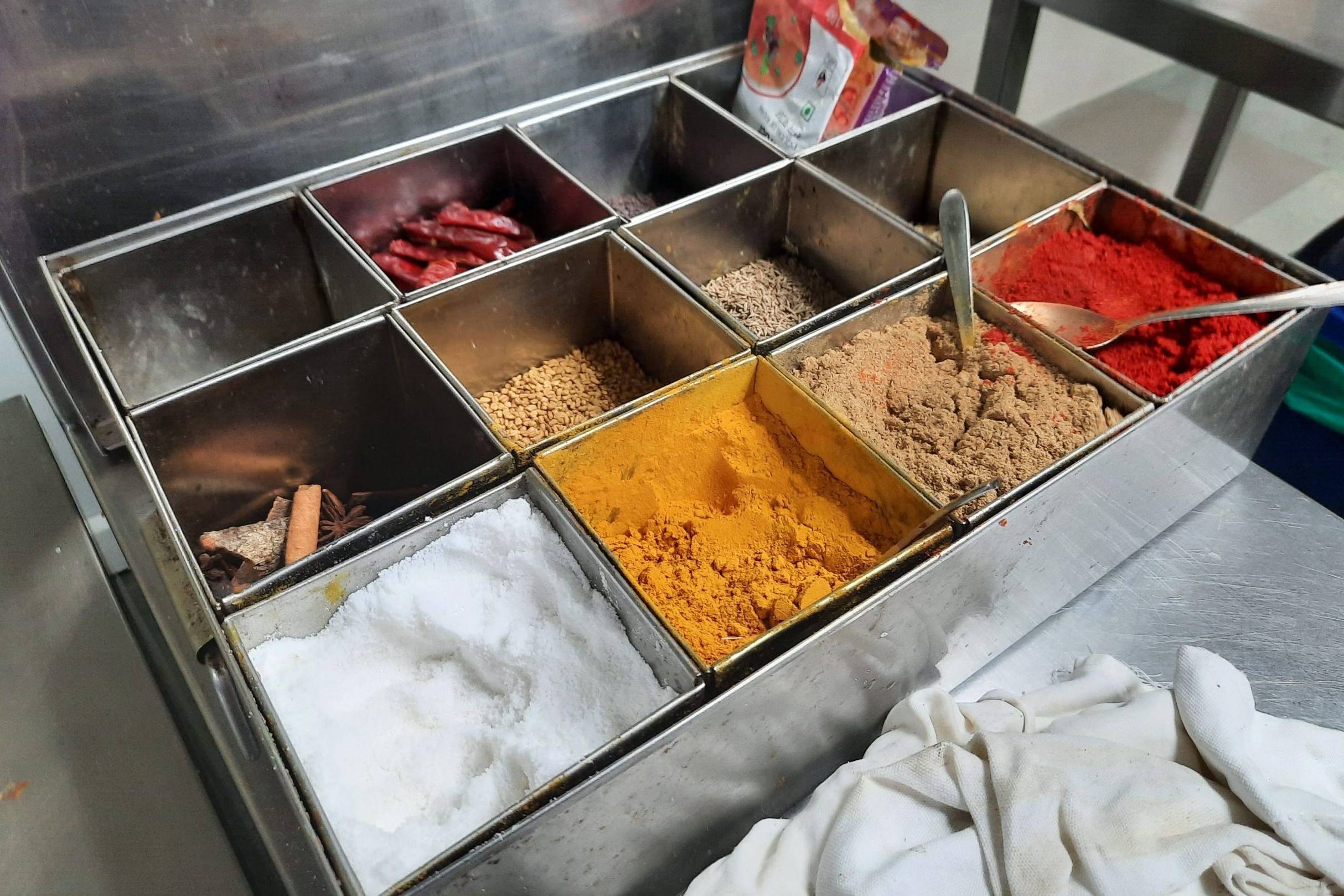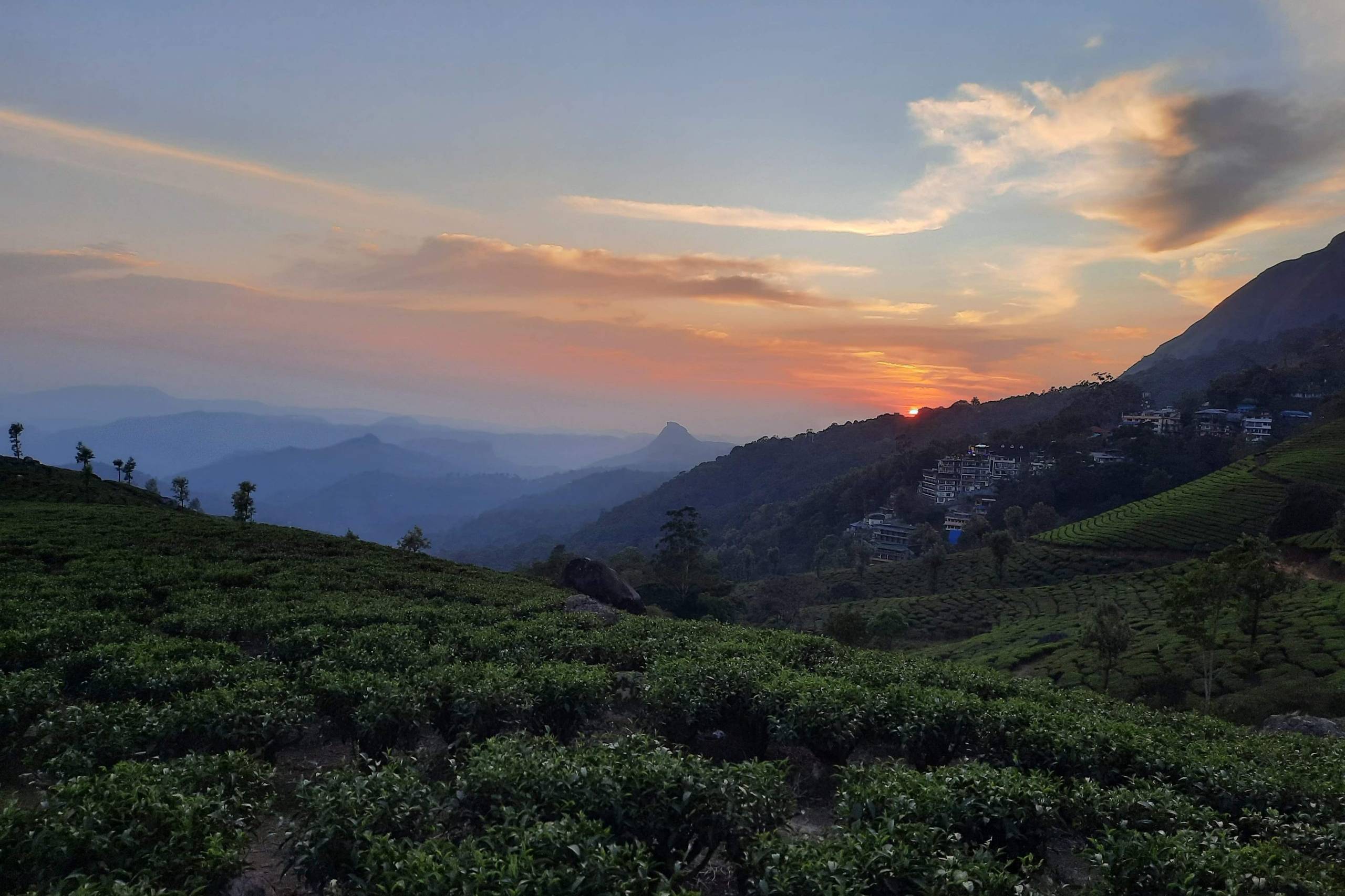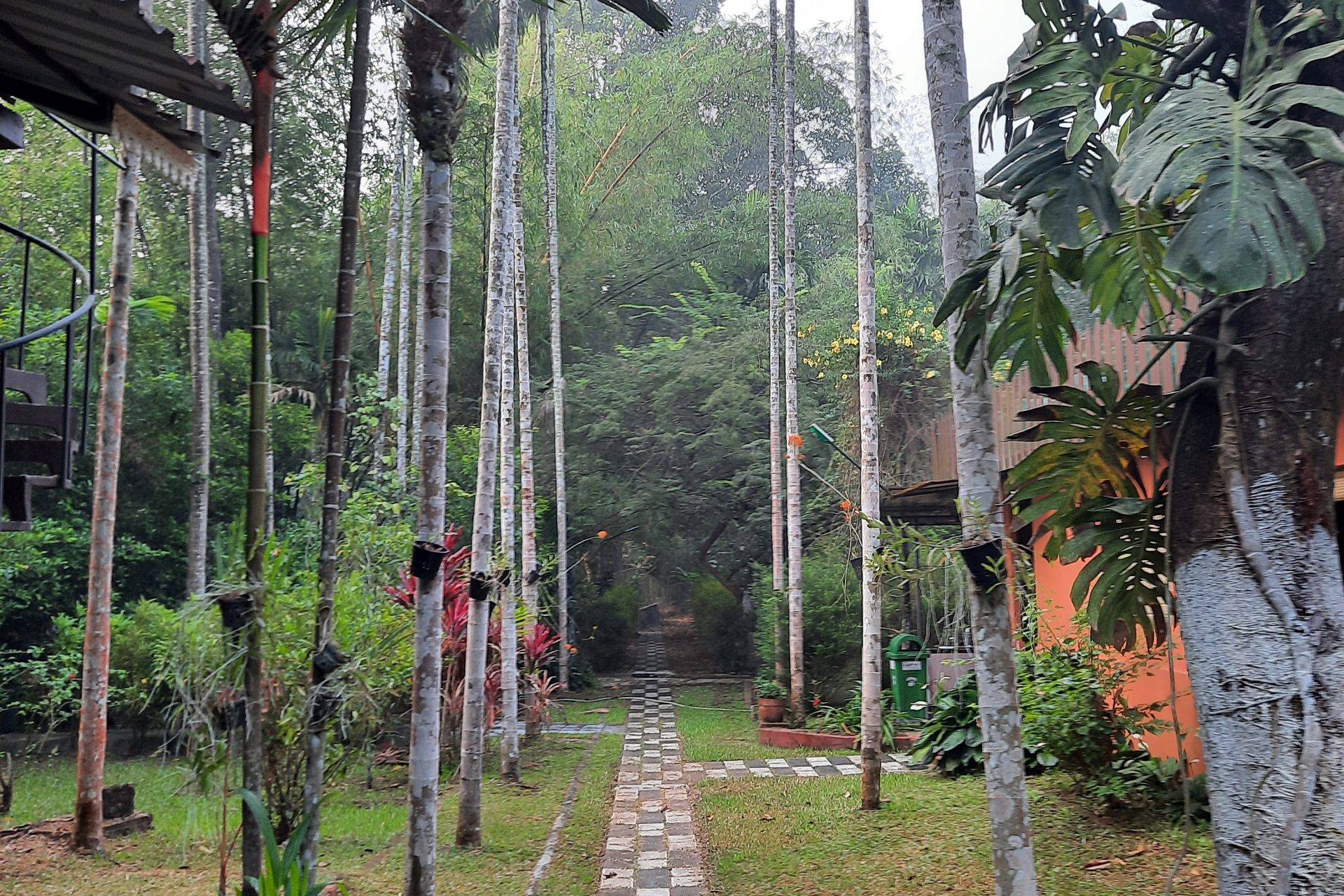All About the Backwaters
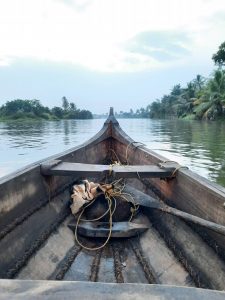
The backwaters of Kerala, India may well be the ultimate destination in slow travel. Lazily drifting down quiet waterways framed by coconut palms, mango trees and rice paddies, life is as peaceful and as slow as it gets. The sights are magnificent in a quiet, understated sort of way and nature seems to have gone wild in this corner of the world. Greens of all shades and hues, muddy brown waters punctuated by riotous pinks of lotus flowers, tropical birds adorned in their magnificent coats from vermillion to aquamarine all add to travelling slowly in the backwaters of Kerala where we spent a week in March, 2022.
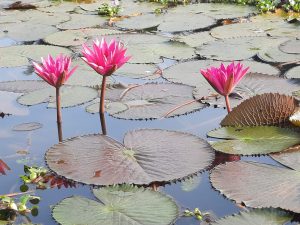
The backwaters are a series of lagoons and lakes that form a virtual labyrinth of waterways over 900 kilometers long, lying parallel to the Arabian Sea, with only several kilometers of land separating them from the sea. The waters are mostly freshwater, and are used not only for the irrigation of the rice paddies that line many of the canals and lakes, but also for tasks of daily living such as bathing, cooking and laundry.
Why Slow Travel?
One of the motivations that drives my slow travel is getting to see different life styles up close, meeting people whose givens in life are quite different than mine, and gaining perspective on what makes us all human. As a psychologist and a person interested in people, travelling the canals and streams around Kumarakom in the backwaters of Kerala allowed me a unique and up close peek into a world gone by, untouched by roads, supermarkets, and the hustle and bustle of modern day life.
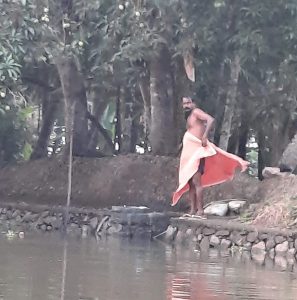
Canoeing at Sunrise
On an early morning guided canoe trip as the sun rose above the horizon, I spotted men and women bathing in the water right outside their front door, a youngster brushing his teeth as he leaned over the canal, and a grandmother scouring the cooking pots from last nights dinner. Children are ferried to the waterside school in boats, and my guide pointed out the local church, also directly on the water, with a boat parking lot adjacent. All transportation is either by water or foot. The slowly moving waters are everpresent and form a backdrop to every moment of life.
On Houseboats and Shikaras
Tourists often choose to spend a night on one of the more than 2000 houseboats that proliferate the backwaters, and they are picturesque indeed. The houseboats were originally rice barges that underwent transformation and range from simple to luxurious. We chose to forgo the houseboats in favor of the simpler, and more ecologically friendly shikara, which is the traditional wooden Keralan boat with room for six to eight people that can enter the smaller, less travelled waterways. Sunrise and sunset tours of two to three hour duration are readily available and are a relaxing way to enjoy life on the waters.
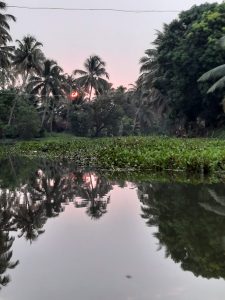
In pursuit of adventure, I set out for a sunrise trip on a very small canoe, with only my guide sharing the experience. The silence of the ride as our canoe cut through the water, was ocassionally punctuated by a motorized canoe ferrying passengers or produce along the canals. Our canoe had an outboard motor as well but we used it only occasionally, not being in a rush to get anywhere and preferring to soak up the quiet and commune with nature. In the small canoe we paddled the narrowest of canals and saw neighbors talking to each other across the canals, sharing a joke a story or borrowing a kitchen implement. Men and women walking to work along the narrow, foot wide paths that ran alongside the canals waved enthusastically to us, surprised to see me (a tourist) so early in the morning in their neck of the woods.
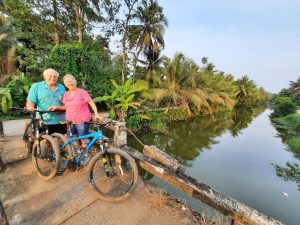
Biking the Backwaters
Choosing yet another way to experience the charm of the backwaters we signed up for a two hour bicycle tour with Plunge Adventures and cycled the very narrow roads and paths that have only recently been built alongside the larger canals and lagoons. These new roadways allow motorcycles and bicycles to traverse the area, increasing access and introducing a more modern way of life to the villagers who have mixed feelings about advancing modernity. On the one hand the roads make life easier, on the other, life is changing rapidly. As we pedaled by rolling green rice paddies, our guide explained how rice is planted, irrigated, and reaped, and boasted that Kerala is the rice bowl of all of India.
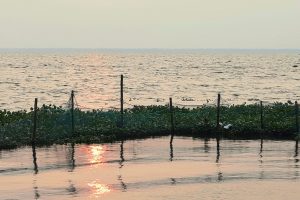
As we watched the setting sun reflected on the peaceful backwaters of Kerala in all its magnificence, this trip became indelibly etched into one of our most memorable Indian adventures, introducing us to life on the water, and helping us gain a new perspective on how people live lives so different from ours.

